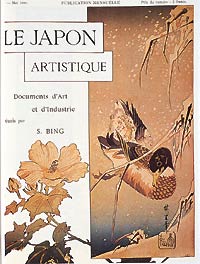 The Comparative Literature course focuses primarily on how modern Western and Japanese literature have influenced each other. However, the discipline goes further than merely listing the relationships between specific works in the sense of a balance sheet or ingredients label. In the study of Comparative Literature, one is required to critique the major premise of globalization in literature (which brought about acceptance and transformation) and the corresponding resistance to it. For example, a key tenet of Comparative Literature is handling mutual negotiations such as how interest exhibited by the West toward the East in the forms of Orientalism and Japonisme was amalgamated in Japan and, as a result, the frameworks of “Japan” and “the West” were constructed and transformed.
The Comparative Literature course focuses primarily on how modern Western and Japanese literature have influenced each other. However, the discipline goes further than merely listing the relationships between specific works in the sense of a balance sheet or ingredients label. In the study of Comparative Literature, one is required to critique the major premise of globalization in literature (which brought about acceptance and transformation) and the corresponding resistance to it. For example, a key tenet of Comparative Literature is handling mutual negotiations such as how interest exhibited by the West toward the East in the forms of Orientalism and Japonisme was amalgamated in Japan and, as a result, the frameworks of “Japan” and “the West” were constructed and transformed.
The discipline also encompasses cross-cultural research of literature from around the world within the confines of a specific theme, the mutual influences between art and literature, as well as topics such as empire and postcolonialism. In all cases, comparisons of one text with another require historical investigation and close reading of both works. To engage in literary comparison, students need to possess sufficient command of language and rigorous methodology.
Professor
-
- HASHIMOTO, Yorimitsu (Ph.D.)
- Comparative Literature and Culture; British Studies
